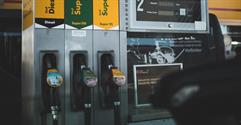Stocking food, drink, newspapers and various household essentials, convenience stores are among the more common sights on South African high streets.
Also known as grocery stores, they offer local residents a quicker, more local way to get everyday items than large, out-of-town supermarkets.
And for entrepreneurs, convenience stores for sale offer a way into business ownership that doesn’t require qualifications or even, necessarily, previous retail experience.
Your suitability
You must be well organised and at ease dealing with the general public to flourish in this environment.
But if you’re going into business for the first time then it’s a business model you can get to grips with comparatively quickly.

You can ease the transition further by arranging, through your broker, to spend some time at the shop with the outgoing owner in the run-up to completion. In this way you can be introduced to customers and familiarise yourself with day-to-day tasks like ordering stock and using point-of-sale systems.
Whatever your background, the convenience store is a realistic route to becoming your own boss – so long as you’re ready to work long hours. Opening hours are long and include weekends too.
But if a lack of retail experience doesn’t disqualify you altogether, it might influence the kind of business you take on.
 Your budget
Your budget
A buyer experienced in retail might be more confident about buying a struggling, but relatively inexpensive business, and coordinating a revamp of its layout, pricing or product range.
First-time buyers are typically more comfortable with thriving outlets – as long as they can afford the higher price tag this implies.
But there are other ways to keep the price down. Leasehold stores are cheaper than freehold ones, for instance, although you then have the ongoing expense of paying rent to a landlord.
Living above the shop, if accommodation is part of the deal, can also free up a huge amount of capital and reduce overheads, not to mention avoid a time-consuming commute.
Naturally, you will need some working capital in the bank – perhaps equivalent to 1-2 weeks of turnover – to buy stock, meet maintenance costs and cover other outgoings once you take ownership.
A convenient location
A convenience store’s location has a huge bearing on its asking price. The more customers it is conveniently located for, the greater its moneymaking potential for the owner.
Indeed, a prime location but unimpressive trading history often represents a bargain if you can successfully identify and remedy the business’s failings.
Maybe you could transform its fortunes with changes to the prices, product range, layout, signage, suppliers or approach to customer service.
Floor space is another major determinant of price. A big store obviously gives you more scope for diversification and boosting customers’ average spend per visit. That said, it’s amazing how many product lines you can pack in with an intelligent layout.

A rural convenience store draws from a smaller pool of customers than its urban counterparts but has
less competition to contend with. It can also justify selling a broader range of products since there are fewer alternative providers. Urban or high street locations benefit from higher footfall, but also pay higher rents.
Footfall and the number of nearby dwellings should be considered alongside the number of local competitors – not just other grocery stores but supermarkets too.
Consider the needs of the local population and whether they’re being adequately met by the business, its competitors and other retailers in adjacent areas. Depending on your conclusions, you might, for instance, consider introducing photocopying, cash withdrawal, electricity top-ups, e-cigarettes or an in-store bakery.
Due diligence
Your accountant or business broker can help you obtain and interpret historic figures relating to turnover, profit, lease payments and so on. What you see in the balance sheet should be supported by observations during visits to the shop on how busy it is at various times of day and days of the week.
Play the part of a mystery shopper to gauge pricing, product range, customer service and so on. Is there room for improvements that could boost custom? Also, take note of the condition of the premises to strengthen your hand during negotiations.
For advice on the overall buying process, read our 10 step guide to buying a business.





